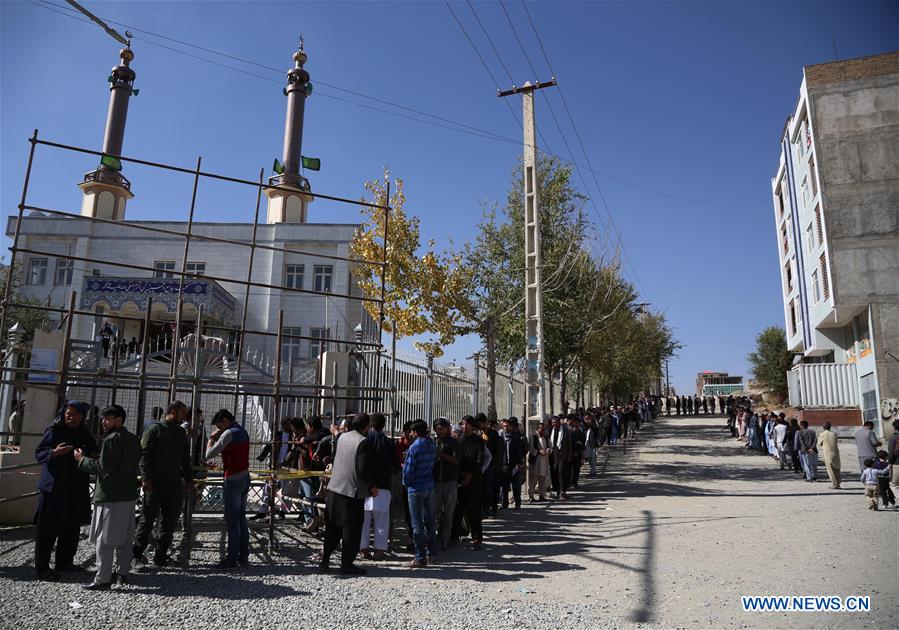Avoiding idealism in Afghanistan in the post-American vacuum
- By Sumantra Maitra
 0 Comment(s)
0 Comment(s) Print
Print E-mail China.org.cn, October 28, 2018
E-mail China.org.cn, October 28, 2018

"From the beginning, liberal hegemony was destined to fail, and it did…," writes John Mearsheimer, an esteemed professor of international relations, in his new book, Liberal Delusions. "This strategy invariably leads to policies that put a country at odds with nationalism and realism, which ultimately have far more influence on international politics than liberalism does."
Prescient words, and, put simply, mean American policymakers ever since 1993 have never understood the importance of nationalism as a political force, and how much it constrains foreign policy. While American relative power was enormous, it was possible to shape global policy across the world, something which is increasingly becoming difficult day by day.
The prescription, therefore, is simple. Restraint in foreign policy, understanding that other powers have their valid interests, understanding that there are toxic regions that are not modern or liberal enough to allow any foreign concept such as representative democracy to be imposed upon tribal allegiances or laws or culture.
Any attempt to do so, will always tend to produce a backlash, which cannot be dealt with liberal ideas like persuasion, but will need a stricter method that liberalism will not allow. In short, liberal hegemony, as Mearsheimer terms it, is bound to fail.
It's unlikely, that this book has been read by any policy makers in the Trump administration, as it has only just been published. However, it virtually coincided with the biggest setback occurred in the ongoing American war in Afghanistan.
Afghanistan's controversial police chief of Kandahar, Abdul Raziq, often noted for human rights violations but also the most successful policeman in the region, was shot by a rogue fanatic working as one of his bodyguards. Raziq, as is known in the region was a man of unusual methods, but he managed to bring peace in the city of Kandahar, notorious as the birthplace of the Taliban.
With the death of Raziq, however, peacekeeping suffered a deadly blow, one of the hardest in the last 17 years, with the entire top leadership of a city being wiped out in one go. The Taliban insurgency is nowhere near defeated, in fact it now controls more territory than it has ever done since 2001.
The Taliban knows the Americans are looking for an honorable exit, and that it's only a matter of time before the last American soldiers leave the land. Afghanistan is a land often occupied and conquered, but never dominated. The pattern continues.
The Taliban knows this, as does America. The American-funded and supported government's writ only runs in the main cities, so that outside of Kabul, Herat and Kandahar, tribal laws still have the final say.
Imagine how different the history would have been if the Americans had left in, say, 2003? The Taliban decimated and toppled, and the Northern warlords controlling and ruling the country. A land that, since mid-12th century, has been clearly divided along ethnic lines, would have fallen back onto the old ethnic lines, and divided according to the balance of power as of old.
Something Asians understand, and Euro-Americans forget, is that there are regions deeply steeped in a unique culture, with a unique sense of history and ideology and, most importantly, special laws. It is prudent to let it evolve in its own pace.
Americans and liberals in general, with their internationalist humanitarian ideology, are unwilling to accept this simple truth. As in Greek history, nemesis comes after hubris, and Afghanistan underscores the failure, which Mearsheimer so eerily predicts in his book.
The reality is that America will leave Afghanistan. However, its importance in the region will not decline. It provides a central focal point, between Pakistan, India, Iran, Russia and China. Life will continue, even after Taliban or whoever wins after the Americans leave. Trade will continue, and Afghanistan shouldn't be allowed to be a breeding ground for terror to be exported to neighboring great powers.
Yet, how to control that, is a million-dollar question. The original war highlighted by 9/11 to reshape the world is over, and the U.S. lost. That doesn't mean the war or conflict will stop anytime soon. Soon Americans will be out of Afghanistan. How to manage that vacuum, is a matter for policy makers to urgently ponder on, hopefully avoiding the idealistic mistakes of the British, Soviets and Americans.
Sumantra Maitra is a columnist with China.org.cn. For more information please visit:
http://m.keyanhelp.cn/opinion/SumantraMaitra.htm
Opinion articles reflect the views of their authors only, not necessarily those of China.org.cn.





